
Lawmakers pass what would be first of eight temporary or band-aid funding bills for fiscal year 2011, averting threat of government shutdowns each time.

Amid Republican threats to block debt ceiling increase absent large spending cuts, congressional leaders and President Obama try to strike "grand bargain" for $4 trillion in deficit reduction over decade. Negotiations break down several times and they fail.

Budget Control Act enacted. It raises debt ceiling, averting U.S. default; requires $2.1 trillion in deficit reduction; and creates "super committee" to strike debt reduction deal. Critics note it does nothing to curb long-term debt.

Standard & Poor's downgrades U.S. credit rating to AA+, down from sterling AAA. It's country's first-ever downgrade. S&P cites political brinksmanship over debt ceiling. The next week, Wall Street experiences one of its most dizzying, volatile weeks ever.

President signs what would be first of six temporary funding bills for fiscal year 2012, averting threats of government shutdowns and abrupt tax changes.

Super committee calls it quits after 10 weeks, without reaching deal on debt reduction. Group's expected failure reactivates threat of $1.2 trillion in automatic, across-the-board cuts for 2013. Despite having all of 2012 to decide, Congress can't agree how to replace them with something smarter.

After months of uncertainty, president signs two-month extension of payroll tax cut, which Congress then re-ups in February for the rest of 2012. Lawmakers also pass temporary funding bill – the year's sixth – to fund government through Sept. 30, 2012.

President signs first of two temporary funding bills to cover fiscal year 2013. Measures don't address elephant in the room – the looming $7 trillion in tax hikes and spending cuts known as "fiscal cliff."

Fiscal cliff deal reached after marathon negotiations that bleed into New Year's Day. Deal extends most Bush tax cuts and permanently protects middle class from AMT. But it doesn’t raise the debt ceiling and it only temporarily delays the onset of automatic cuts.
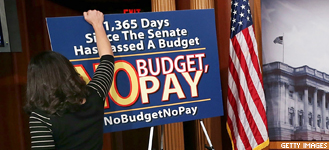
"No Budget, No Pay Act" takes effect. It temporarily suspends debt ceiling and requires House and Senate to each pass 2014 budget proposals or lawmakers wouldn't be paid. It does not require the two chambers to negotiate differences between their proposals. There still is no 2014 budget.

Across-the-board budget cuts take effect despite both Democrats and Republicans lambasting them as terrible way to pare deficits.
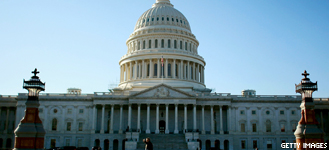
Congress manages to pass stopgap bill to fund government for rest of fiscal year 2013.
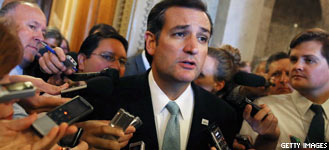
House conservatives and GOP Sen. Ted Cruz insist government should not be funded unless Obamacare is defunded, disabled or delayed. Some want to attach the same demand to any debt ceiling increase. Other Republicans rightly deem this a losing strategy.
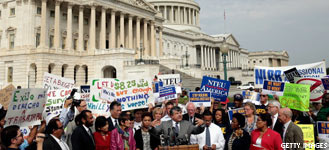
Conservatives’ quest to disable Obamacare scuttles efforts to pass funding for FY2014 and raise the debt ceiling. Federal agencies shutter offices and furlough hundreds of thousands of federal workers. Country now risks defaulting on legal obligations in a matter of weeks. Episode damages U.S. reputation abroad.
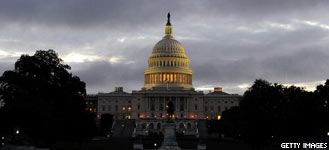
Lawmakers finally manage to pass a short term funding bill that also allows a de facto increase in the debt ceiling. They also agree to negotiate on the budget. The deal does not include any of the GOP’s big demands on Obamacare.

President Obama signs bill ending 16-day shutdown and allowing Treasury to continue borrowing. Government re-opens and federal employees go back to work. Everyone is grumpy after yet another fruitless, manufactured crisis.
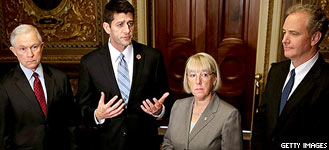
Lawmakers have until Jan. 15 to negotiate funding for rest of 2014. If they fail, either the government shuts down again, or the sequester cuts funding even more. They have until Feb. 7 to raise the debt ceiling or risk a first-ever default as early as March.